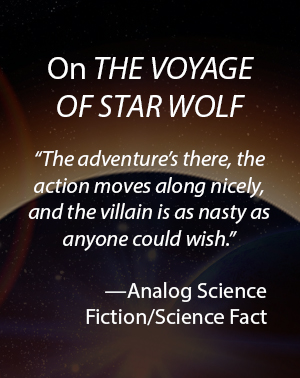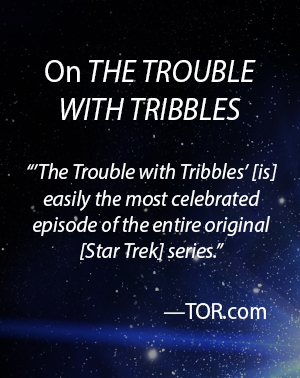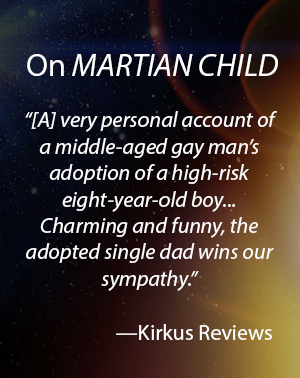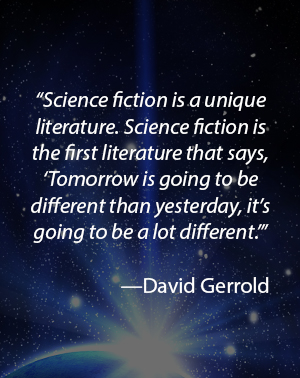When I was teaching screenwriting at Pepperdine, I used to warn my students that their friends were going to stop watching TV with them, and wouldn’t go out to the movies with them anymore.
They’d give me the look.
Then four or six weeks later, one or another would raise her hand and say, “My friends won’t watch TV with me anymore,” or “My friends don’t want me to go to the movies with them anymore.”
Why?
Because once they were aware of basic story structure (person has a problem, problem assaults person, personal assaults problem, triggering insight, person transforms, handles problem), they saw that essential structure in every good story and complained when the structure was violated in a clumsy story. So in the after-show conversations, they were able to point out why they felt dissatisfied — which tended to annoy others at the table, because it was either arrogant or erudite, I’m not sure which.
That was a problem I experienced as well — the awareness of structure, characterization, dialog, etc. was getting in the way of enjoyment. There was also, for a long time, the curious phenomenon of what I called “the Siskel-Ebert moment” — as the lights are coming up in the theater and the audience is soberly filling out, you can hear snatches of conversation, “there was a continuity error in the first act that put me off,” or “the editing of the montage was sloppy, they didn’t need the cutaway to the door,” or “the dialog was too on-the-nose in the cute meet,” or other remarks from the 101st Chairborne that indicated that they hadn’t watched the movie, they’d only judged it.
How often do you hear people get up and say, “Wow, that was fun!”
Maybe not that much because most movies these days aren’t much more than dark rides — you get in a little theme-styled vehicle that takes you past one display after another that gives you the illusion of a story. Summer movies aren’t written for stories, they’re written for moments. First we’ll have the spaceship crash, then we’ll have the robot dinosaur attack the city, then we’ll have the enraged zombies charge the UN building, then … you get the idea. And while any one of these set pieces, these big-budget effects sequences, might have significant emotional impact — mostly they don’t. Because there’s no story — just a lot of connective tissue to get from one gag to the next. (“Gag” is an industry term for a stunt or a big moment.)
Jar Jar Abrams has trained a whole stable of writers to write big moments — without a lot of real story, no emotional development, no moral dilemma, no transformation — just lots of big action moments. And that attitude has infected the industry. Worse, too many producers, having read “Save The Cat” think that it’s a blueprint, not an analytical tool.
Which is why I’ve skipped most of the summer blockbusters. (Unless Joss Whedon is involved.)
Real storytelling happens when writers forget the “rule book” and write to the characters. They get inside the people in the story and experience the sights, the sounds, the smells, the emotions, and they let the reactions of the characters drive the incidents of the story. Yes, there’s still opportunities for big moments — the 1953 version of “War Of The Worlds” is a perfect example of character driving plot and plot driving character.
And if sometimes a writer breaks the rules — it’s because that’s the place where it’s necessary, because it works, because it makes the audience gasp. Best example of that is Hitchcock’s “Psycho.” He kills off Janet Leigh halfway through the picture and leaves the audience emotionally adrift — who the hell is the movie really about now? It’s part of the impact.
About thirty years ago, I heard an est trainer remark — “When I pay six dollars for a movie, I’m going to get my six dollars worth of good time, I don’t care what they put on the screen.” He explained, “How many times when the movie is over, you get up and grumble, ‘We paid six bucks for THAT?’ Stop and think about it. The movie is what it is. You’re the one who’s deciding how to react to it.”
Shortly after that, I — and several friends — had the opportunity to test that. I think the movie was “Suspiria.” Or maybe it was some other godawful thing I wouldn’t have paid to see — but someone we knew had a bit part in it so we felt obligated to go see it. Knowing ahead of time that it was going to be an awful movie — something about vampires in a girl’s school, an excuse to have young women in almost-revealing lingerie running around and screaming about bats — I was the one yelling, “cut the strings!” — but, knowing ahead of time it was likely to be an awful film, we made up our minds to go and have a good time with a bad movie. This was before MST3K or “The Creeping Terror” or “Manos, Hands Of Fate.”
We had a good time. We knew it was a lousy movie. We could have spent the after-movie coffee-shop discussion picking it apart. Instead, we all agreed we’d had fun and instead of having a conversation rooting in negativity, we had a much more interesting and upbeat conversation. We got our six bucks worth of entertainment.
Eventually, I learned how to turn off my inner critic. (He’s in there with my inner child, my inner dirty old man, my inner mom, and probably my inner lunatic as well.) Now, when I go to the movies or turn on the TV, I’m going to let them tell me a story. At the end of the show, I don’t have to log onto Facebook and nit-pick the damn thing to death. Yes, I found the Robin Hood episode to be lightweight, less than I expected, but I enjoyed the moment of truth at the end, so the journey was worth it. Yes, I liked the Under The Bed episode a lot, I loved the way it tied its various moments together (although I have two unanswered questions). But no, I do not feel obligated to explain why Capaldi is better or worse, why the writing is this or that, or speculate on the ultimate direction of the storylines.
Why not? Because of the profound realization that those kinds of judgments are too often the ego in disguise. It’s not about what was on the screen — it’s an opinion about what was on the screen. And unless the opinion is an informed one, it’s worthless.
If I watch a show or read a book or go to a movie, it’s not because I want it to be written or directed the way I think it should be done — it’s because I want to see what another creative mind has come up with. It’s because I want to see where James Cameron or Steven Moffatt or Joss Whedon is going to take me this time. I go for the ride. When one of those fellows picks up the phone and calls me and offers to pay me for my professional analysis, then I will be happy to do the whole critical judgment thing — but when I invest my time in any entertainment, it’s to be entertained, so I’m going to appreciate the ambition, applaud what works, and be charmed by everything that succeeds. If a series doesn’t hook me by the third episode, I stop following it. If a movie leaves me feeling “meh,” — yeah, that happens sometimes, but if it’s a big “meh” why should I invest any more of my time picking it apart?
See, I think this is part of authorial maturity.
You start out as a fan. Every horror, fantasy, and SF writer — the good ones anyway — started out as a fan of the genre.
As a fan of any genre, first you’re excited — ohboy, more stories about lesbian leprechauns fighting zombie sasquatches in medieval Switzerland. Then, as you become better read in that genre, you become the expert fan, the experienced fan — they say that taste is the product of a thousand distastes — so eventually, you reach the point where you’ve read so much in that genre that you begin to recognize all the tropes, all the mechanisms, all the devices, and you start to compare one against the other — and that’s when you turn into Comic Book Guy, issuing pronouncements: “Worst. Zombie. Sasquatch. Ever.” Or “Worst. Lesbian. Leprechaun. Ever.”
For a lot of fans, that’s a dead end, there’s no place left to go. Wander the halls of Comic-Con, you’ll see what I mean.
But there’s the next place — the rediscovery of enthusiasm.
You don’t have to like everything in the genre, you begin to recognize the prevalence of Sturgeon’s Law. And that’s when you learn how to select for quality — but after that, there’s another place — it’s called appreciation of the effort. Even if an author or filmmaker stumbles a bit, you appreciate the ambition, the challenge, and all the parts he/she got right.
Eventually, you can go back to being an appreciative audience — but now as an informed reader or filmgoer, you can appreciate the skill of a job well done. Or you can understand why something is “meh,” or you can recognize the parts that worked and the parts that didn’t. But you don’t have to invest a lot of time and energy being Comic Book Guy.
And that’s my point. Comic Book Guy isn’t having any fun. He’s bored — and he’s boring. Bart and Milhouse are having fun. They’re excited and interested. They get it — it’s about being a kid again. The whole point of a comic or a book or a movie or a TV show is to be a kid and have fun. It’s about trusting the author/filmmaker to take you on an exciting journey — not a dark ride, but a journey of discovery. You can’t do that if you’re watching the lighting, the editing, the camera angle, the dialog, the acting — you gotta let go and be a kid again.
You want me to be a big bad grownup and analyze it critically? Pay me. I don’t work on spec.





